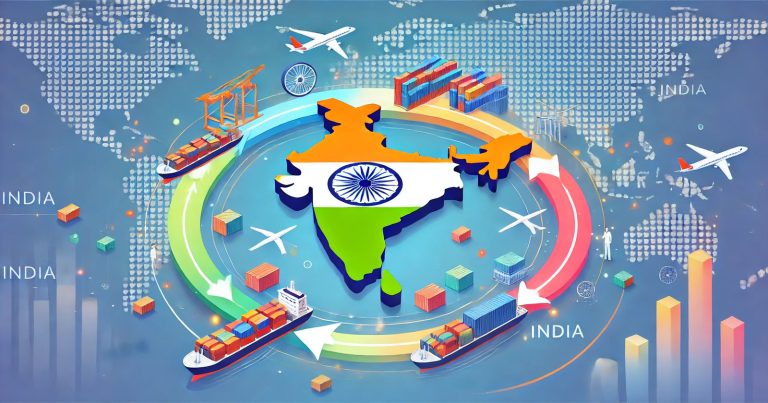
India’s import guidelines in line with its own interests, social norms, highlights GTRI report
NEW DELHI : Experts have underlined that several of India’s import guidelines are in lines with domestic economic needs and social ethos, even as a new report by the US Trade Representative has flagged concerns around several tariff and non tariff barriers imposed by India.
“Many of the proposed changes—in areas like agriculture, digital governance, and public health—pose serious risks to India’s ability to protect its small farmers, maintain food safety, uphold deeply rooted social norms, and secure its digital future,” said Ajay Srivastava, founder, Global Trade Research Initiative in a report. It further underlined that India will not trade away its policy space, economic security, or public welfare to please foreign interests. “Reforms must serve the people of India—not just the profit margins of foreign corporations,” advocated the report.
For instance, one of the issues raised in the 2025 National Trade Estimate (NTE) Report of the USTR is around India “onerous” requirements on dairy imports. It has pointed out that India requires that dairy products intended for food be derived from animals that have not consumed feeds containing internal organs, blood meal, or tissues of ruminant or porcine origin and that exporting countries certify to these conditions, which lack a discernable animal health or human health justification.
“This requirement, along with the recent dairy health certificate requirements, new facility registration requirements, and high tariff rates, continues to hamper market access for US milk and dairy product exports to India, one of the largest dairy markets in the world,” the USTR report highlighted.
However, the GTRI report pointed out that India may never allow such a relaxation. “The US sees this as too strict, but imagine eating butter made from the milk of a cow that was fed meat and blood from another cow. India may never allow that,” it underlined.
Similarly, the US has criticised India’s strict import licensing for remanufactured goods and medical devices. In 2024, India stopped issuing licenses for refurbished U.S. medical devices, affecting exports. “While the US sees this as unnecessary red tape, India worries that relaxing the rules could lead to a flood of secondhand or low-quality products that might harm consumers and hurt local industries,” the GTRI report noted.
Another instance flagged by GTRI was how the US keeps on pushing India to dismantle all regulations in digital arena to allow free flow of data for the US tech firms. “For the US, India’s digital trade policies are particularly contentious. The Reserve Bank of India mandates data localisation, requiring foreign payment service providers to store Indian data domestically,” said the report. While the US sees this as a burden on global cloud and payment services, India defends it as necessary for data sovereignty and security, it said.
For instance, one of the issues raised in the 2025 National Trade Estimate (NTE) Report of the USTR is around India “onerous” requirements on dairy imports. It has pointed out that India requires that dairy products intended for food be derived from animals that have not consumed feeds containing internal organs, blood meal, or tissues of ruminant or porcine origin and that exporting countries certify to these conditions, which lack a discernable animal health or human health justification.
“This requirement, along with the recent dairy health certificate requirements, new facility registration requirements, and high tariff rates, continues to hamper market access for US milk and dairy product exports to India, one of the largest dairy markets in the world,” the USTR report highlighted.
However, the GTRI report pointed out that India may never allow such a relaxation. “The US sees this as too strict, but imagine eating butter made from the milk of a cow that was fed meat and blood from another cow. India may never allow that,” it underlined.
Similarly, the US has criticised India’s strict import licensing for remanufactured goods and medical devices. In 2024, India stopped issuing licenses for refurbished U.S. medical devices, affecting exports. “While the US sees this as unnecessary red tape, India worries that relaxing the rules could lead to a flood of secondhand or low-quality products that might harm consumers and hurt local industries,” the GTRI report noted.
Another instance flagged by GTRI was how the US keeps on pushing India to dismantle all regulations in digital arena to allow free flow of data for the US tech firms. “For the US, India’s digital trade policies are particularly contentious. The Reserve Bank of India mandates data localisation, requiring foreign payment service providers to store Indian data domestically,” said the report. While the US sees this as a burden on global cloud and payment services, India defends it as necessary for data sovereignty and security, it said.

